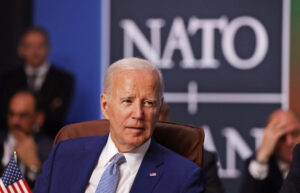It was early September in 1971. My mother had taken me in a taxi to a boutique hotel in a leafy northern Athenian suburb to visit my favourite uncle, her beloved brother. Before we got out the car, she put her arm around me and whispered words of courage in my ear. You see, Hotel Pefkakia had been commandeered by the ESA, the Greek military regime’s version of the Gestapo, which had turned it into a holding cell for VIP dissidents. What I saw inside, including my uncle’s tortured face, ensured that, from the age of 10, I understood what it meant to live in a brutish dictatorship.
Everyone remembers that a swathe of Eastern European countries were once communist dictatorships. From the Baltic Sea to Poland to the Black Sea, they lingered under one-party rule, their peoples at the mercy of secret policemen. Less often discussed is the fact that, half a century ago, three of the European Union’s current member-states were fascist dictatorships: Portugal, Spain and Greece. But this history of Western European peoples toiling under Rightist, ultra-nationalist, fascist regimes is relevant, now that we are experiencing a surge of nationalism, a moral panic over migrants and refugees, and a craving for strongmen or women to make our countries “great again”. With this year’s European Parliament elections on the horizon, there are important lessons in this half-forgotten history.
I grew up in the supposed cradle of democracy, in a Greece ruled by tyrants swearing allegiance to an ideology not too different to the one making a comeback today across Europe. Establishment figures such as my uncle — who at the time was managing director of Siemens in Greece — rose up against it, and failed. But two years after I visited him that day, in November 1973, students spontaneously occupied Greece’s most prestigious university, the Athens Polytechnic. After five glorious days, during which the city centre was temporarily liberated from the regime, the army entered the city and, with a column of US-built tanks leading the way, liquidated the Polytechnic uprising. Following the tank that crushed the Polytechnic’s front gate, commandos and gendarmes — handpicked for their fascist allegiances — mopped up any remaining resistance. For weeks afterwards, police cells would echo with the screams of the students tortured therein.
The uprising was crushed, but the regime never recovered its poise. A couple of days later, a Brigadier General overthrew the Colonels in office and took the Rightist regime even further toward unfettered viciousness. This paroxysm of authoritarianism appeared in its most comical form on our television screens: news bulletins were read by stern, uniformed, be-medalled army officers barking orders at their viewers.
Six months later, perhaps in a desperate bid to stabilise their regime, our dictators overreached, with a shambolic attempt to extend their rule over the independent Republic of Cyprus. All they managed to do was trigger a brutal Turkish invasion of the island, which brought Greece and Turkey to the brink of war and resulted in countless dead, wounded and displaced Cypriots — a tragedy whose repercussions are still with us, in the form of the ugly Green Line dividing the island to this day. One might have thought a military regime would lovingly maintain its armed forces, but that episode exposed the weakness of Greece’s. It also crushed our economy just as the demise of Bretton Woods and the oil crisis were putting global capitalism into a tailspin. Within days, the junta crumpled. This year, in July, the nation will mark the 50th anniversary of a version of liberal democracy returning to Greece.
Just as well, given that the history of how the Greek junta came to be has largely been forgotten. It was imposed by rogue military officers in April 1967, but it was planned and enabled by various branches of the US government, as far back as the Fifties. Greece’s was part of a long series of coups d’état that the CIA staged around the world — from the 1953 coup that overthrew Mohammad Mosaddegh, Iran’s last democratically elected Prime Minister, to General Augusto Pinochet’s 1973 murder of President Salvador Allende in Chile.
What is relevant here is not why Washington felt the need to overthrow the centrist, pro-Western government of George Papandreou in 1965, before giving the green light to the Colonels, two years later, to dissolve Parliament and put Greek society “in plaster, exactly as the surgeon must do with a broken limb” — to quote the inimitable Colonel Geórgios Papadopoulos, the junta’s chief. Given the questions currently swirling round Europe, what I think matters is that, in 1967, the governments of France, Germany, Austria and to some extent Britain were vocally and tangibly opposed to the coup. The arrival of fascism in Greece caused a rift between Europe’s main powers and the United States, even though they were all on the same side of the Iron Curtain. Europe was an ally of Greece’s democrats, who were struggling against the Nato-aligned junta that the US supported.
In the summers of this era, my parents would drive us to Vienna or Munich, to “breathe the air of freedom”. The rest of the year, especially during the bleak nights, we would crouch next to the wireless to listen to Deutsche Welle and the BBC — covering ourselves with a red blanket to minimise the chances of being overheard by neighbours eager to inform on us. The Greek-language programmes on these channels, unlike the pro-junta Voice of America, were brimming with support for the democratic resistance.
In short, Europe supported a free Greece, while America betrayed it. It was thus not surprising that, once the junta had collapsed, a large cross-section of Greek society — including the conservative Prime Minister Konstantinos Karamanlis — were inimical to Nato but sympathetic, some enthusiastically so, toward the European Common Market, the forerunner of the EU. Contrary to what many Northern Europeans believe, most Greeks did not see the EU as the cash cow it became later on, but as a guarantee that the tanks would stay idle and the secret police at bay — something Eastern Europeans would also long for after the collapse of their dictatorships in 1991.
This explains why Greeks who remember our resistance to the junta proudly tend to have a very different view of Nato than Eastern Europeans with memories of their communist dictatorships. When Vladimir Putin ordered his troops to invade Ukraine, I condemned the Kremlin’s invasion as criminal, referred to Putin as a “ruthless killer”, called for all democrats to stand with Ukraine, and advocated for the West to negotiate an immediate end of the Ukraine war by trading the retreat of Russian troops for a pledge to keep Ukraine out of Nato. To me, what mattered most was that the West did whatever it took to push Russia’s troops back to where they were on 22 February 2022, while enabling Ukraine to flourish within liberal democratic Western Europe.
Alas, my comrades in Eastern Europe were not impressed. Razem, a Left-leaning Polish party, denounced me for failure to “support Ukrainian sovereignty”. On social media I was labelled a “westsplainer” and Putin’s useful idiot.
This split in our pan-European movement saddened me, but I tried to focus on its historical causes. In the eyes of my Eastern European comrades, Nato appears as a club of states that throws a protective shield around liberal democracies. From their perspective, Nato membership is crucial to Ukraine’s independence, and my suggestion that the country should stay out of Nato seemed like a betrayal of its democrats. To me, by contrast, having grown up under fascist regimes that not only had the blessing of Nato but which were largely engineered by CIA and Nato functionaries, seeing Ukraine’s membership as the key to its democratic future seemed absurd.
Of all the slogans that they could have written on the Polytechnic’s gate, the heroic Athens Polytechnic students who risked their lives to help restore Greek democracy chose two two-word phrases: OUT USA and OUT NATO. With their blue jeans and their predilection for jazz, they were not anti-American, but they were supremely resistant to the facts of living in a quasi-US colony where our national budget had to have the US Ambassador’s informal approval and in which Nato and the CIA controlled our military, our skies and seas, our secret police.
And while it is true that, in many advanced nations — such as the Netherlands and Denmark — Nato membership was fully consistent with liberal democracy, Greece was not the odd country out. The Portuguese, too, lived both under fascism and within Nato. Successive generations of Turkish democrats will tell you that it is utterly feasible to live in a Nato country that is oppressed by mind-numbing levels of authoritarianism. Indeed, no less a Western statesman than General Charles De Gaulle believed that Nato was detrimental to his nation’s sovereignty.
And yet, ever since Putin’s regime invaded Ukraine, we have lost our capacity, as Europeans, to have a rational and historically-grounded debate about whether Nato membership is detrimental to, or essential for, European liberal democracies.
Of course, some would argue that Nato membership is about defending a country from external threats, rather than guaranteeing democracy. But, arguably, Nato membership is neither necessary nor sufficient for a country’s defence. Greece’s greatest territorial threat is from Turkey, but Nato policy is that it only intervenes when a non-Nato country threatens one of its members. If Turkey, a Nato member, were to invade a Greek island, Nato would stay out of it. At the other extreme, Jordan, Egypt and, of course, Israel are fully under the US and Nato defence umbrella, even though they are not Nato members.
So, what is the point of Nato? A decade or so ago, I enjoyed an informal conversation with a former Chief of Staff of Nato’s forces in Europe. The American, a staunch Republican, was candid when I asked him whether Nato remained fit for purpose. “It depends on how you define its purpose,” he replied with a smile. I asked how he defined it. “It’s three-fold,” he said. “First, to keep us in Europe. Second to keep the Russians out. Third, to keep Germany down.” No analysis of Nato’s role in Europe that I have encountered since has been more accurate or prescient.
The question for Europeans today, as the war in Ukraine rolls on and the European Parliament elections loom, is simple: is it wise to assume that our democracies are strengthened when we hand over our foreign policy and defence to Nato — in other words, to the US government? Or did the Athens Polytechnic students, along with General De Gaulle, have a point when they feared that unthinking allegiance to Nato would accelerate Europe’s steady slide into vassal continent status? Personally, I will always side with the students.
Disclaimer
Some of the posts we share are controversial and we do not necessarily agree with them in the whole extend. Sometimes we agree with the content or part of it but we do not agree with the narration or language. Nevertheless we find them somehow interesting, valuable and/or informative or we share them, because we strongly believe in freedom of speech, free press and journalism. We strongly encourage you to have a critical approach to all the content, do your own research and analysis to build your own opinion.
We would be glad to have your feedback.
Source: UnHerd Read the original article here: https://unherd.com/





